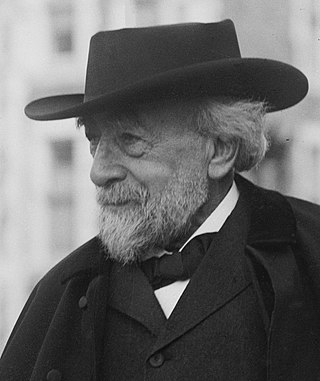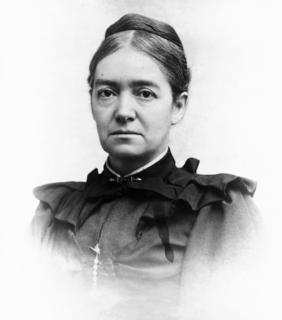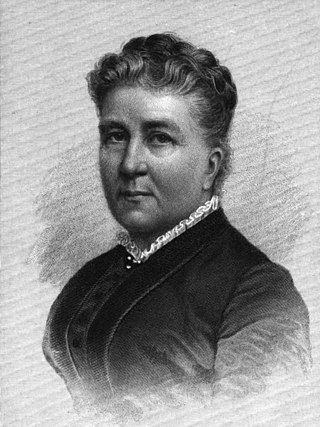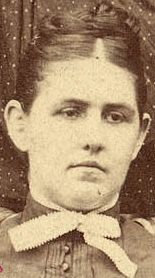
Abraham Jacobi was a German physician and pioneer of pediatrics. He was a key figure in the movement to improve child healthcare and welfare in the United States and opened the first children's clinic in the country. To date, he is the only foreign-born president of the American Medical Association. He helped found the American Journal of Obstetrics. He is regarded as the Father of American Pediatrics.

Marie Elisabeth Zakrzewska was a Polish-American physician who made her name as a pioneering female doctor in the United States. As a Berlin native, she found great interest in medicine after assisting her mother, who worked as a midwife. Best known for the establishment of the New England Hospital for Women and Children, she opened doors to many women who were interested in the medical field and provided them with hands-on learning opportunities. Within the New England Hospital, she established the first general training school for nurses in America. Her drive and perseverance made the idea of women in medicine less daunting. She also initiated the creation of the first sand gardens for children in America.

Mary Corinna Putnam Jacobi was an English-American physician, teacher, scientist, writer, and suffragist. She was the first woman admitted to study medicine at the University of Paris and the first woman to graduate from a pharmacy college in the United States.

Elizabeth Blackwell was a British and American physician, notable as the first woman to earn a medical degree in the United States, and the first woman on the Medical Register of the General Medical Council for the United Kingdom. Blackwell played an important role in both the United States and the United Kingdom as a social reformer, and was a pioneer in promoting education for women in medicine. Her contributions remain celebrated with the Elizabeth Blackwell Medal, awarded annually to a woman who has made a significant contribution to the promotion of women in medicine.

Lenox Hill Hospital (LHH) is a nationally ranked 450-bed non-profit, tertiary, research and academic medical center located on the Upper East Side of Manhattan in New York City, servicing the tri-state area. LHH is one of the region's many university-level academic medical centers. The hospital is owned by Northwell Health, the largest private employer in the state of New York. LHH serves as a clinical campus for the Zucker School of Medicine, which is owned by the health system in a partnership with Hofstra University.

The Ancoats Hospital and Ardwick and Ancoats Dispensary was a large inner-city hospital located in Ancoats, to the north of the city centre of Manchester, England. It was built in 1875, replacing the Ardwick and Ancoats Dispensary that had existed since 1828. The building is now Grade II listed.

A hospital is a healthcare institution providing patient treatment with specialized health science and auxiliary healthcare staff and medical equipment. The best-known type of hospital is the general hospital, which typically has an emergency department to treat urgent health problems ranging from fire and accident victims to a sudden illness. A district hospital typically is the major health care facility in its region, with many beds for intensive care and additional beds for patients who need long-term care.

Anna Ottendorfer was a German-American journalist and philanthropist. She was associated with the development of the German-language New Yorker Staats-Zeitung into a major newspaper.
Erasmus Darwin Hudson Jr., M.D. was an American thoracic physician and educator.

Chicago Hospital for Women and Children, renamed Mary Thompson Hospital after its founder's death in 1895, was established in 1865 and provided medical care to indigent women and children as well as clinical training to women doctors. It was founded by Mary Harris Thompson, who received her degree in Boston in 1863 from the New England Female Medical College, the first medical school for women.

Dr. Anna Sarah Kugler was the first medical missionary of the Evangelical Lutheran General Synod of the United States of North America. She served in India for 47 years. She founded a hospital in Guntur which was later named for her.

Pacific Dispensary for Women and Children, initially known as Children's Hospital and then The Hospital for Children and Training School for Nurses, was a women's and children's hospital founded in 1875 in San Francisco, California. In 1877, it was renamed Children's Hospital. Children's Hospital merged with Presbyterian Hospital in 1991, and within two years, a large joint physician group was established. It was subsequently acquired by California Pacific Medical Center.
The Evening Dispensary for Working Women and Girls was an innovative American health care service at the turn of the twentieth century. As a public dispensary, it provided "outpatient medical treatment and advice to patients, in contrast to the inpatient service provided by hospitals". It offered medical treatment for poor women, educated the public on health matters, and provided female medical students with an opportunity to learn and gain experience.

Anna Lukens was an American physician from Philadelphia, Pennsylvania who practiced medicine, had leadership roles in hospitals and taught medicine. She was a vice-president of the New York Committee for the Prevention and State Regulation of Vice.
Anna Adelia Angell was an American physician.

Mary Ann Delafield DuBois was an American sculptor and philanthropist. In 1854 she was co-founder of New York Nursery and Child's Hospital, and was the hospital's director.
The Northwestern Dispensary was "founded under the auspices of the 'New York Association for Improving the Condition of the Poor'" in 1852. Their first location was 511 Eight Avenue. Funding for construction of a second building was part of the city budget. Its location was Ninth Avenue and 36th Street.

Marie J. Mergler was a 19th-century German-American physician, surgeon, and medical writer. She opened a general practice in Chicago in 1881, before specializing in obstetrics and gynaecology. She became a skilled gynecological surgeon, and in this field stood among those at the head of her profession in what was then considered to be the northwestern United States. She served her alma mater as lecturer, professor, secretary and Dean. She held several hospital positions as consultant or on the attending staff.
Sara Tew Mayo, M.D., (1869-1930) was a physician and humanitarian reformer in New Orleans, Louisiana, USA. She served the underprivileged and advanced the cause of women as physicians at a time and place when few women were practicing physicians as a result of gender discrimination. Mayo was a founding member of the New Orleans Hospital and Dispensary for Women and Children which was renamed the Sara Mayo Hospital in 1948.















